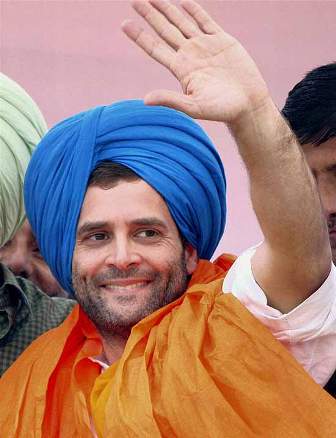
Banikhet (Dalhousie), November 1: Fearing backlash inHP polls on his government's FDI policy that has received widespread criticism from the Opposition parties, AICC general secretaryRahul Gandhi batted for the new reform while craftily comparing it to "the IT revolution his father had introduced in the late 80s".
"My father Rajiv Gandhi ji brought computers.... Look what happened after that? More jobs. Don't you people in Himachal use computers and internet?" he said.
The Congress-ruled UPA runs several schemes such as Rajiv Gandhi Rashtriya Computer Saksharta Mission, named after the former prime minister.
The Congress MP also said that Himachal Pradesh's remote and treacherous districts which produce apples and potatoes needed cold storage facilities for better trade and income to farmers.
"This is only possible if we bring a good support system. And FDI is a step only in that direction," he said.
Much of his speech on FDI, however, looked a repeat of what his mother and UPA chairpersonSonia Gandhi had said at her rallies in Mandi and Kangra districts a few days ago.
Also, he did not mention any new centrally-aided schemes for Chamba district, which is the second most backward district of the country.
The district has the higest total disabled population of 11394 in the state.
Despite its Poor investment in infrastructure and lack of drive towards transforming hill agriculture into a viable and competitive livelihood, the district received only Rs 70 crore for the FY 2011-12.
Some local leaders also criticised him for choosing the British-era modern town for his campaigning while ignoring the rest of Chamba's constituencies crying for attention.





Comments
Add new comment